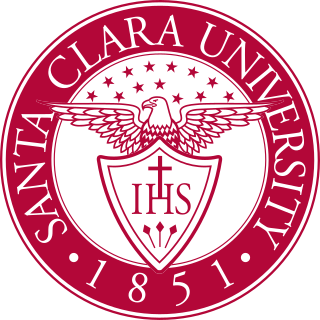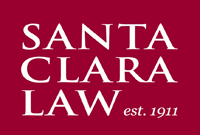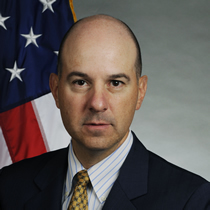
Intellectual property (IP) is a category of property that includes intangible creations of the human intellect. There are many types of intellectual property, and some countries recognize more than others. The best-known types are patents, copyrights, trademarks, and trade secrets. The modern concept of intellectual property developed in England in the 17th and 18th centuries. The term "intellectual property" began to be used in the 19th century, though it was not until the late 20th century that intellectual property became commonplace in most of the world's legal systems.

A patent is a type of intellectual property that gives its owner the legal right to exclude others from making, using, or selling an invention for a limited period of time in exchange for publishing an enabling disclosure of the invention. In most countries, patent rights fall under private law and the patent holder must sue someone infringing the patent in order to enforce their rights.

Silicon Valley is a region in Northern California that is a global center for high technology and innovation. Located in the southern part of the San Francisco Bay Area, it corresponds roughly to the geographical area of the Santa Clara Valley. The term "Silicon Valley" refers to the area in which high-tech business has proliferated in Northern California, and it also serves as a general metonym for California's high-tech business sector.
Technology transfer (TT), also called transfer of technology (TOT), is the process of transferring (disseminating) technology from the person or organization that owns or holds it to another person or organization, in an attempt to transform inventions and scientific outcomes into new products and services that benefit society. Technology transfer is closely related to knowledge transfer.

Santa Clara University is a private Jesuit university in Santa Clara, California. Established in 1851, Santa Clara University is the oldest operating institution of higher learning in California. The university's campus surrounds the historic Mission Santa Clara de Asís which traces its founding to 1777. The campus mirrors the Mission's architectural style and is one of the finest groupings of Mission Revival architecture and other Spanish Colonial Revival styles. The university is classified as a "Doctoral/Professional" university.

The Santa Clara University School of Law is the law school of Santa Clara University, a Jesuit university in Santa Clara, California, United States, in the Silicon Valley region. The School of Law was founded in 1911. The Jesuit affiliation of the university is manifested in a concern with ethics, social justice, and community service.
The software patent debate is the argument about the extent to which, as a matter of public policy, it should be possible to patent software and computer-implemented inventions. Policy debate on software patents has been active for years. The opponents to software patents have gained more visibility with fewer resources through the years than their pro-patent opponents. Arguments and critiques have been focused mostly on the economic consequences of software patents.
In United States patent law, patent misuse is a patent holder's use of a patent to restrain trade beyond enforcing the exclusive rights that a lawfully obtained patent provides. If a court finds that a patent holder committed patent misuse, the court may rule that the patent holder has lost the right to enforce the patent. Patent misuse that restrains economic competition substantially can also violate United States antitrust law.

In international law and business, patent trolling or patent hoarding is a categorical or pejorative term applied to a person or company that attempts to enforce patent rights against accused infringers far beyond the patent's actual value or contribution to the prior art, often through hardball legal tactics. Patent trolls often do not manufacture products or supply services based upon the patents in question. However, some entities, which do not practice their asserted patent, may not be considered "patent trolls", when they license their patented technologies on reasonable terms in advance.
The Prioritizing Resources and Organization for Intellectual Property Act of 2008 is a United States law that increases both civil and criminal penalties for trademark, patent and copyright infringement. The law also establishes a new executive branch office, the Office of the United States Intellectual Property Enforcement Representative (USIPER).
Legal scholars, economists, activists, policymakers, industries, and trade organizations have held differing views on patents and engaged in contentious debates on the subject. Critical perspectives emerged in the nineteenth century that were especially based on the principles of free trade. Contemporary criticisms have echoed those arguments, claiming that patents block innovation and waste resources that could otherwise be used productively, and also block access to an increasingly important "commons" of enabling technologies, apply a "one size fits all" model to industries with differing needs, that is especially unproductive for industries other than chemicals and pharmaceuticals and especially unproductive for the software industry. Enforcement by patent trolls of poor quality patents has led to criticism of the patent office as well as the system itself. Patents on pharmaceuticals have also been a particular focus of criticism, as the high prices they enable puts life-saving drugs out of reach of many people. Alternatives to patents have been proposed, such Joseph Stiglitz's suggestion of providing "prize money" as a substitute for the lost profits associated with abstaining from the monopoly given by a patent.

David "Dave" J. Kappos is an attorney and former government official who served as Under Secretary of Commerce for Intellectual Property and Director of the United States Patent and Trademark Office (USPTO) from 2009 to 2013. Kappos is currently a partner at New York law firm Cravath, Swaine & Moore.

The Leahy–Smith America Invents Act (AIA) is a United States federal statute that was passed by Congress and signed into law by President Barack Obama on September 16, 2011. The law represents the most significant legislative change to the U.S. patent system since the Patent Act of 1952 and closely resembles previously proposed legislation in the Senate in its previous session.
Article One Partners (AOP) is an online prior art search and intellectual property research crowdsourcing community. AOP was acquired by RWS Group in October 2017 and the AOP Connect crowdsourcing platform is now part of the IP Research group within RWS. RWS IP Research provides crowdsourced prior-art-search services by utilizing an online research community. The company's President stated that, as of June 30, 2018, AOP comprises "more than 40,000 in over 170 countries."

Eric Goldman is a law professor at Santa Clara University School of Law. He also co-directs the law school's High Tech Law Institute and co-supervises the law school's Privacy Law Certificate.
Suzanne Scotchmer was an American professor of law, economics and public policy at the University of California, Berkeley and also a noted author on many economic subjects. She earned her B.A. from University of Washington magna cum laude in 1970, her M.A. in statistics from UC Berkeley in 1979, and her PhD in economics from UC Berkeley in 1980.
A patent privateer or intellectual property privateer is a party, typically a patent assertion entity, authorized by another party, often a technology corporation, to use intellectual property to attack other operating companies. Privateering provides a way for companies to assert intellectual property against their competitors with a significantly reduced risk of retaliation and as a means for altering their competitive landscape. The strategy began with a handful of large operating companies. In April 2013, a group of technology companies asked the U.S. Department of Justice and the Federal Trade Commission to investigate the privateering strategy as an impediment to competition.

Michelle Kwok Lee, born 1965 in Santa Clara, California, was vice president of Amazon Web Services and a former Under Secretary of Commerce for Intellectual Property and Director of the United States Patent and Trademark Office (USPTO).
Unified Patents is a member-based organization whose goal is reducing the number of non-practicing entity (NPE) assertions in specific technology areas.

Robin Feldman is a law professor, researcher, and author best known for her contributions to intellectual property and health care law. Feldman is the Arthur J. Goldberg Distinguished Professor of Law at the University of California, Hastings College of Law Feldman is a widely cited expert on intellectual property and health care law, particularly as it relates to the pharmaceutical industry, drug policy, and drug pricing.









